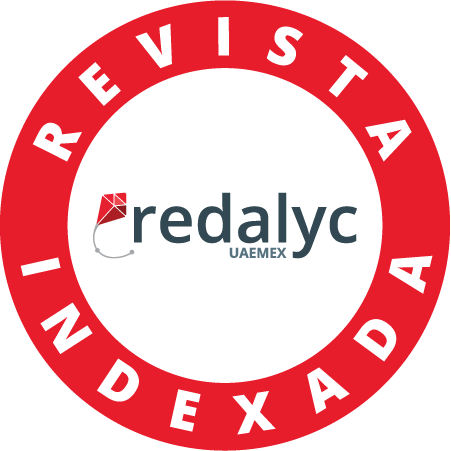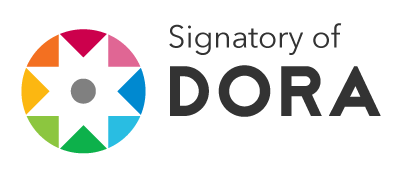Editorial Policy
Giruristi: Revista de Derecho Corporativo publish dogmatic and applied legal research under qualitative, quantitative and mixed approaches developed in Peru, Latin America and the world on corporate law, and related areas with the purpose of disseminating results that promote knowledge of the sciences of law for the improvement of society and sustainable development.
As a research journal, it publishes original and unpublished research articles and journals.
Sections and section policies
Each volume will be dedicated to one or two specific topics and will consist of the following sections:
- The editorial page
- A section intended for academic articles on an area or topic referring to a corporate, economic or related area.
- Eventually, a second section of academic articles from a second area that complements the previous one.
- Eventually, a miscellaneous section where current articles or articles of legal interest in general may appear.
- Eventually, a section dedicated to journals of articles, books or other academic works.
The journal accepts two types of contributions: articles and journals.
Articles
They are studies aimed at corporate law and related areas. The articles may be theoretical or empirical. They must be unpublished and cannot have their evaluation pending in other journals. The works will be journaled by evaluators through the double-blind system.
Article structure
- Article title (concise and informative)
- Names and surnames of the author, institutional affiliation, ORCID, institutional email.
- Summaries and keywords in three languages: Spanish, English, Portuguese. A minimum of four keywords must be assigned per article.
- Text of the work. The text must be a minimum of 10 and a maximum of 15 pages.
- Bibliographic references (corresponding to explicit citations in the text, with a minimum of 12 and maximum of 20 sources. It is suggested to include sources obtained from databases, such as Alicia de Concytec, Scopus, WoS or Scielo, as well as from Latin American and Peruvian journals like Giuristi herself, as long as the information is related to the content of the text).
The articles received will be evaluated before publication and must have the following characteristics:
- Constitute a contribution related to research in law as a response to the needs of society for the consolidation of entrepreneurship and business management.
- Be original.
- Be unprecedented.
- Be written in Spanish, English or Portuguese.
- The text must be in Microsoft Word, Times New Roman, font size 12, spaced one and a half times.
For more details, it is recommended to journal the article template:https://docs.google.com/document/d/1chQxL2d7QH1Y0isQqwzbV8KchhnqVzij/edit?usp=sharing&ouid=117010226952834692217&rtpof=true&sd=true
For the shipping process you can check the following link:https://drive.google.com/file/d/1u33cyQ-seQTmhCNgbfzT_V7A4Q4ntNMU/view?usp=sharing
It is appropriate to specify that it is not possible to publish two articles by the same author in the same issue of the journal since theAuthor can only publish one research per journal issue. Except in exceptional situations where the topic warrants it and the blind evaluators recommend it.
journals
Commented journals of Corporate Law books published in the last two years prior to the next issue of the journal. journals of classic legal books published in the 19th century and earlier are also permitted.
The journals received will be evaluated by the editor before publication and must have the following characteristics:
- Be unprecedented.
- Do not have pending evaluation in another journal.
- Be written in Spanish, English or Portuguese.
- The text must be in Microsoft Word, Times New Roman, font size 12, single spaced, up to 2 pages.
For more details, it is recommended to journal the journal template:
An author of a manuscript can only publish one work per issue of the journal. journals are not published where an author appears in two texts in the same issue of the journal.
Peer evaluation policy
In the Evaluation Phase, all manuscripts received will be refereed by two anonymous and ad honorem journalers, under the "double blind" modality (Double-blind peer journal) through which referees and authors do not know the identity of each one in order to preserve anonymity in the journal process. The journal requests made to the arbitrators give them a suggested deadline and ask for their commitment to avoid delays.
This phase takes between four and six months, since it includes journal time by the referees, the collection of observations by the authors, and final acceptance. In case of queries, the authors can write to giuristi@esan.edu.pe
Manuscripts received are considered accepted for publication when the evaluation process has been positively completed.
The journalers use a Matrix to rate manuscripts.
Open access policy
Open Access Statement
Giruristi: Revista de Derecho Corporativo provides open access to its content. In order to assist in the elimination of the legal and technical barriers to access to research products and their exchange at a global level, the contents of Giruristi: Revista de Derecho Corporativo are in immediate open access and to the full text and does not and will not charge any fees to its readers for subscription or to authors for submitting, processing or publishing their articles.
Giruristi: Revista de Derecho Corporativo recognize and respect the copyright and grants use rights to others through the open license. In that sense, it allows immediate free access to intellectual creation and allows any user to read, download, copy, distribute and print it. Likewise, it allows searching and linking the full texts of the articles, tracking them for indexing, transferring them as data to software or using them for any other lawful purpose. We do not require users to register to read journal content.
License statement
All contents of the electronic journal are distributed under a use and distribution licenseCreative Commons Attribution 4.0 International (CC BY 4.0). For which:
You are free to:
- Share— copy and redistribute the material in any medium or format for any purpose, including commercially.
- Fit— remix, transform and build upon the material for any purpose, including commercially.
The licensor cannot revoke these freedoms as long as you follow the terms of the license.
Under the following terms:
- Attribution— You must give credit appropriately, provide a link to the license, and indicate if changes have been made. You may do so in any reasonable manner, but not in such a way as to suggest that you or your use are endorsed by the licensor.
- There are no additional restrictions— You cannot apply legal terms or technological measures that legally restrict others from making any use permitted by the license.
Notices:
You do not have to comply with the license for elements of the material in the public domain or where their use is permitted by a exception or limitation applicable.
No guarantees are given. The license may not give you all the permissions you need for your intended use. For example, other rights such as publicity, privacy, or moral rights. They may limit how you use the material.
https://creativecommons.org/licenses/by/4.0/
Good editorial practice policy
Editorial ethics
Giruristi: Revista de Derecho Corporativo assumes and promotes ethical editorial practices. Provides guidelines to avoid conflict of interest, to maintain ethical commitment and to detect similarities.
Conflict of interests
The Editorial Board, the authors and the evaluators declare that they respect the ethical principles of research and are free of conflicts of interest. Authors must indicate the funding sources linked to their research work, if applicable. The authors must indicate what the contribution of each author was, specifying the full names of each one in the text presented.
Commitment to research assessment (DORA)
Giuristi: Revista de Derecho Corporativo adheres to the principles established by San Francisco Declaration on Research Assessment (DORA).
In this regard, the journal promotes responsible and equitable editorial practices, avoiding the exclusive use of journal-based metrics, such as impact factor, to evaluate the quality of scientific articles. Instead, it encourages a comprehensive assessment of works based on scientific merit, methodological rigor, relevance to the legal community, and potential impact on the practice of corporate law.
Giuristi: Revista de Derecho Corporativo adherence to DORA reflects its commitment to transparency, continuous improvement in editorial evaluation processes, and the promotion of open, inclusive, and high-quality science.
CRediT (Collaboration Roles)
Giruristi: Revista de Derecho Corporativo adheres to the taxonomy of academic collaboration roles (CRediT) that allows the identification and distinction of the contribution made by the co-authors of a research, specifying the responsibilities that each one assumed in the study process in order to assign the corresponding credits to the authors who participated in the research and in the communication of its results.
The CRediT taxonomy distributes participation roles into 14 typologies through which the authors of a study can obtain recognition in research.
Contributor Roles
Conceptualization: Ideas; formulation or evolution of overarching research goals and aims.
Data curation: Management activities to annotate (produce metadata), scrub data and maintain research data (including software code, where it is necessary for interpreting the data itself) for initial use and later re-use.
Formal analysis: Application of statistical, mathematical, computational, or other formal techniques to analyze or synthesize study data.
Funding acquisition: Acquisition of the financial support for the project leading to this publication.
Investigation:Conducting a research and investigation process, specifically performing the experiments, or data/evidence collection.
Methodology: Development or design of methodology; creation of models.
Project administration: Management and coordination responsibility for the research activity planning and execution.
Resources: Provision of study materials, reagents, materials, patients, laboratory samples, animals, instrumentation, computing resources, or other analysis tools.
Software: Programming, software development; designing computer programs; implementation of the computer code and supporting algorithms; testing of existing code components.
Supervision: Oversight and leadership responsibility for the research activity planning and execution, including mentorship external to the core team.
Validation: Verification, whether as a part of the activity or separate, of the overall replication/reproducibility of results/experiments and other research outputs.
Visualization: Preparation, creation and/or presentation of the published work, specifically visualization/data presentation.
Writing – original draft: Preparation, creation and/or presentation of the published work, specifically writing the initial draft (including substantive translation).
Writing – review & editing: Preparation, creation and/or presentation of the published work by those from the original research group, specifically critical review, commentary or revision – including pre- or post-publication stages.
Ethics commitment
Giruristi: Revista de Derecho Corporativo practice ethics in academic publications for which it adheres to the Principles of Transparency and Best Practices in Academic Publications of Committee on Publication Ethics (Code of Conduct and Best Practices Guidelines for Journals Editors, COPE. This ethical commitment has been signed by all the actors involved in the management and publication of the articles.
About unethical behavior
Any person can inform the editor of the presence of unethical conduct. The journal will respond to any claim, without considering the publication time of the original. Complaints must be supported by evidence in order to initiate an investigation. All claims and allegations against unethical conduct or misconduct will be considered with the utmost seriousness.
Similarity detection
The journal uses Turnitin software to detect plagiarism.
Disclaimer
The authors are responsible for the content of the works and do not express the position or opinion of the Editorial Team or Esan University.
Manuscripts that are not accepted are returned to the authors.
Illustrations, charts and tables that are not the author's must indicate their source. The journal assumes that the author has requested and received the corresponding reproduction permissions and is not responsible for the unauthorized use of them, nor for the legal consequences that may arise due to infringement of intellectual property rights.
Open Science Compliance
The journal is linked to open science practices. Informs authors about publishing data to various repositories.Authors must declare that they agree with open science practices.









